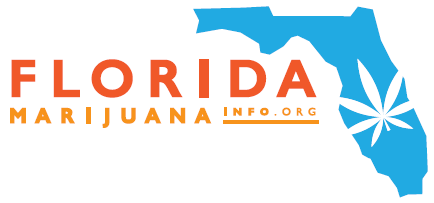by Catherine Avril Morris
Why is marijuana illegal? As Florida voters consider their positions on the issue of whether marijuana should be legalized for personal or medical use, a question may arise that is at once obvious and rather uncommon: When and why did marijuana become illegal in America? The answer is somewhat complicated, as it involves long-standing, deep-rooted American assumptions, prejudices and fears.
Marijuana Was Not Illegal in the U.S. Until Recently
It may come as a surprise that cannabis has not always been illegal in the United States. In fact, during the country’s colonial period in the 17th century, England’s King James I required American colonists to grow hemp in order to send back to England for trade. The U.S. government did not even begin regulating cannabis until the Pure Food and Drug Act of 1906.
A few years later, Mexican immigrants introduced recreational marijuana use to American culture — along with their Spanish slang term for the drug, “marijuana,” which became the new, most common term for cannabis. Some Americans began to view marijuana through the same prejudiced lens through which they viewed Mexican immigrants. Over time, the “Marijuana Menace” became associated with other groups that some considered lower-class or undesirable, such as prostitutes and jazz musicians; and with undesirable behaviors, such as violent outbursts, criminal activity and addiction.
The 1938 film Reefer Madness, now viewed as a classic sensationalist anti-drug propaganda film, depicted marijuana users as descending quickly into hedonism, violence and insanity due to the drug’s supposed ill effects. Despite numerous studies’ findings that marijuana use did not, in fact, lead to violence or insanity, the stigma took hold in the American consciousness.
Decades later, marijuana joined cocaine, heroin and other hard substances on the list of Schedule I drugs in the Controlled Substances Act of 1970 (possession and distribution of Schedule I drugs incur heavier penalties due to those drugs’ being considered highly addictive and dangerous, without any currently accepted medical use). Then, in the 1980s, President Reagan raised federal penalties for the possession and distribution of marijuana, and in 1989, President Bush declared a “war on drugs,” further damaging public perception of cannabis.
Why is Marijuana Illegal? The Main Reasons Marijuana Is Illegal in the United States
The reasons that, until recently, marijuana has been illegal in all fifty of the United States are both varied and complicated, with roots that stretch back into history. Here are a few of those reasons:
1. Prejudice: During the 1920s and ’30s, discrimination, intolerance and racism played an important role in southern and southwestern states’ outlawing the recreational use of marijuana. The drug was associated with Mexican immigrants and migrant workers, who were becoming increasingly unwelcome in America. In the 1950s and ’60s, marijuana came to be associated with black jazz culture, further playing on the fears of prejudiced white Americans and irrevocably tarnishing the drug’s reputation in their minds. Since the 1960s, marijuana has been closely associated in the public mind with “hippies” and other perceived degenerates, continuing the drug’s unsavory image.
2. Health concerns: Marijuana is widely perceived to be addictive, despite many experts’ assertions that it is not; this is part of the reason why cannabis is included alongside harder, more addictive narcotics like cocaine and heroin on the list of Schedule I drugs. Similarly, marijuana is also still officially considered by the U.S. government to have “no currently accepted medical use,” though ongoing medical marijuana research is building a strong case for several important medical indications for cannabis — which are a large part of the movement in Florida and many other states to legalize medical marijuana.
3. Inertia: Gaining public support for the medical or recreational use of marijuana in Florida or any other state will require working against over a century of negative perception of the drug and people who use it. Furthermore, changing the laws regarding the possession, use and distribution of cannabis requires extensive legal work to be done before Florida voters can ever cast their ballots on the issue. Whether changing public fears to acceptance or rewriting laws that have been in place for a hundred years, these are processes that take substantial time and effort to be completed.
About the author:Catherine Avril Morris writes on subjects ranging from astrology to parenting, grief, and romance novels. Her role in the 1993 cult classic film Dazed and Confused may have laid the foundation for her interest in current events related to the legalization of marijuana. Find her at www.catherineavrilmorris.com.















 OMD Agency
OMD Agency
Recent Comments